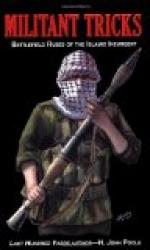Mists blew about the mountains across the river, and over West Point hung a raw fog. Some of the officers who stood with bared heads by the heap of earth and the hole in the ground shivered a little. The young Chaplain read, solemnly, the solemn and grand words of the service, and the evenness of his voice was unnatural enough to show deep feeling. He remembered how, a year before, he had seen the hero of this scene playing football on just such a day, tumbling about and shouting, his hair wild and matted and his face filled with fresh color. Such a mere boy he was, concerned over the question as to where he could hide his contraband dress boots, excited by an invitation to dine out Saturday night. The dear young chap! There were tears in the Chaplain’s eyes as he thought of little courtesies to himself, of little generosities to other cadets, of a manly and honest heart shown everywhere that character may show in the guarded life of the nation’s schoolboys.
The sympathetic, ringing voice stopped, and he watched the quick, dreadful, necessary work of the men at the grave, and then his sad eyes wandered pitifully over the rows of boyish faces where the cadets stood. Just such a child as those, thought the Chaplain—himself but a few years older—no history; no life, as we know life; no love, and what was life without—you may see that the Chaplain was young; the poor boy was taken from these quiet ways and sent direct on the fire-lit stage of history, and in the turn, behold! he was a hero. The white-robed Chaplain thrilled and his dark eyes flashed. He seemed to see that day; he would give half his life to have seen it—this boy had given all of his. The boy was wounded early, and as the bullets poured death down the hill he crept up it, on hands and knees, leading his men. The strong life in him lasted till he reached the top, and then the last of it pulled him to his feet and he stood and waved and cheered—and fell. But he went up San Juan Hill. After all, he lived. He missed fifty years, perhaps, but he had Santiago. The flag wrapped him, he was the honored dead of the nation. God keep him! The Chaplain turned with a swing and raised his prayer-book to read the committal. The long black box—the boy was very tall—was being lowered gently, tenderly. Suddenly the heroic vision of Santiago vanished and he seemed to see again the rumpled head and the alert, eager, rosy face of the boy playing football—the head that lay there! An iron grip caught his throat, and if a sound had come it would have been a sob. Poor little boy! Poor little hero! To exchange all life’s sweetness for that fiery glory! Not to have known the meaning of living—of loving—of being loved!
The beautiful, tender voice rang out again so that each one heard it to the farthest limit of the great crowd—“We therefore commit his body to the ground; earth to earth, ashes to ashes, dust to dust; looking for the general resurrection in the last day, and the life of the world to come.”




